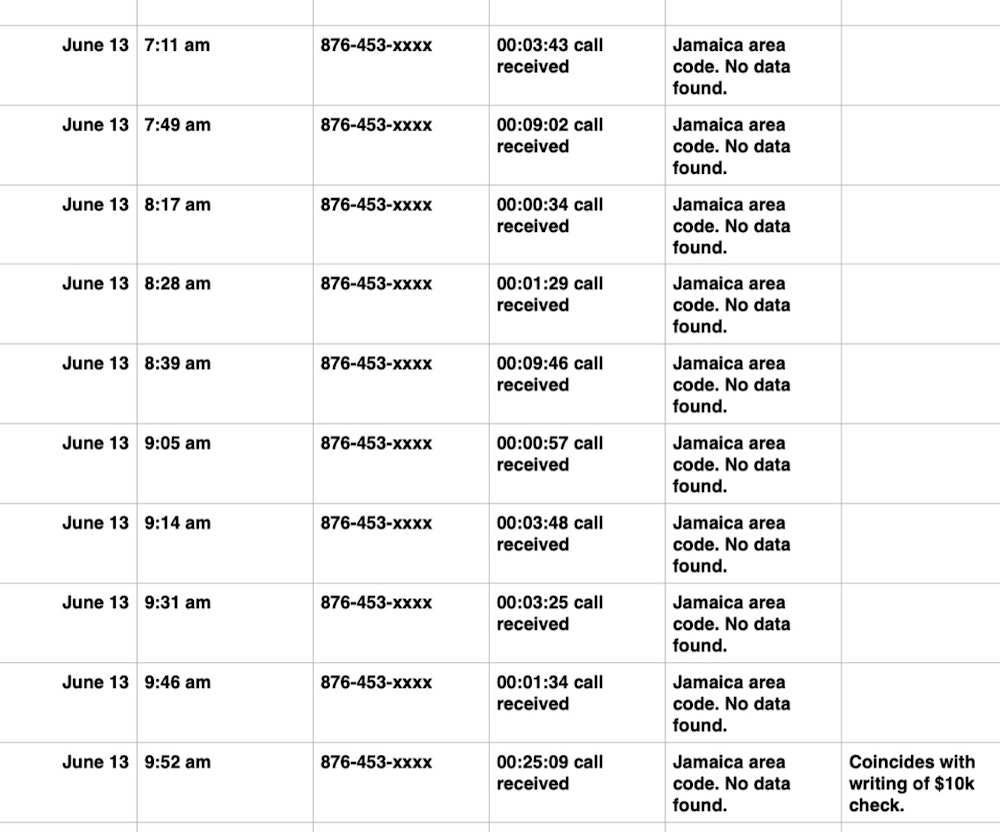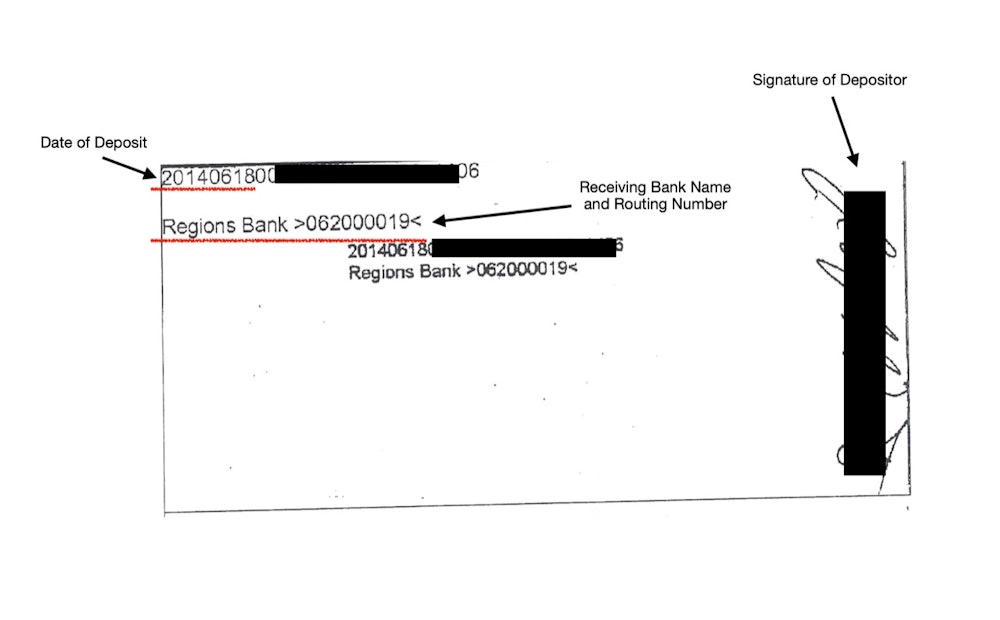Our elderly are among the most vulnerable to fraud schemes. Jason James, former Drug Enforcement Administration (DEA) agent, walks us through an actual fraud case where seniors were targeted as part of a fake sweepstakes scheme.
In this scam, an adult son became aware that his elderly parents, retired and living out of state, began receiving a series of telephone calls from unknown individuals through a "magicJack" device connected to their home computer.
(magicJack is more technically known as a Voice over Internet Protocol (VoIP) device, which allows telephone calls to occur through the internet, and is operated by the U.S.-based company YMAX Corp.)
During those calls, the unknown callers led the elderly parents to believe they had become winners in an overseas sweepstakes contest. They were promised their winnings after they paid the associated taxes. To the adult son's horror, he discovered that his elderly parents had been tricked into paying out thousands of dollars at a time over several months. The details of these events serve as the archetype of scams against the elderly.
How This Sweepstakes Scheme Works
This kind of fraud, known as a "sweepstakes scheme," is often perpetrated by individuals overseas, and frequently so from Jamaica and Nigeria, as well as other Caribbean and Atlantic coast countries. The prevalence of these schemes emanating from these countries may be due to a series of common factors:
- English is commonly spoken in these countries, making communication with elderly U.S. residents easier.
- The scammers are located away from U.S. law enforcement and, therefore, more challenging to catch.
- Relatives and friends of the scammers may reside in the U.S. to help them with the scheme.
Fraudsters communicate with potential victims through VoIP devices, cellular telephones, traditional telephone landlines, and email.
Calls Coming From Jamaica: The First Red Flag
In our studied case, the elderly parents received a series of calls from telephone numbers with a Jamaican telephone prefix.
The parents (aka the victims) received several attempted and completed calls from numbers with the Jamaica telephone prefix 876. Just one of their phones received more than 80 of these calls over five days.
Neither of the elderly parents (nor any other family members) knew anyone residing or visiting Jamaica, nor did they have any business or personal ties to the country.

Money Sent to the Scammers
To satisfy the purported sweepstakes taxes, the elderly parents began sending funds to various individuals across the U.S. by:
- Personal bank check
- Wire transfer
- Cash mailed through the U.S. Postal Service (USPS) and by courier services, including UPS, FedEx, and DHL
Bank records later revealed that those funds were deposited into bank accounts located in various states within the U.S. The adult son estimates that his elderly parents sent more than $800,000 total to the scammers.
The Plot Thickens
The family of the adult victims was able to retrace and document 40 payments their elderly parents made over ten months. The majority were made via personal checks of $7,000 to over $10,000, written by the elderly parent victims to an array of 18 named persons.
Investigative research revealed that several named recipients appeared to be actual people also of retirement age (not fictional names). All recipients received one or two payments from the elderly parent victims, except one who received 20 payments.
A theory began to emerge that the scammers may have directed the elderly parent victims to direct payments to other possible elderly victims, who, by having received a "payout," now believe more fully in the existence of the purported sweepstakes.
Similarities with Pyramid or Ponzi Schemes
This pattern of payments is consistent with how pyramid and Ponzi schemes work, in which funds circulate to appear as legitimate proceeds payouts. But, instead, it is simply money being transferred from new victims to pre-existing victims.
A victim receiving such funds may be convinced to make payments to others, aiding the scammers in laundering said money through a web of transactions between various recipients. Eventually, the majority of funds is paid out to the scammers or their co-conspirators.
The one named person who incongruently received 20 payments (totaling more than $200,000) may likely have been a scam co-conspirator located within the U.S.
Ultimately, the details and documents from this case were gathered and forwarded to federal agencies, including the U.S. Postal Inspection Service (USPIS) and Homeland Security Investigations (HSI), as well as appropriate state-level investigative agencies.
From the U.S. Postal Inspection ServiceUnder the right conditions, anyone could fall for a scam, but scammers are especially successful at targeting people with certain risk factors, like social isolation, loneliness, limited sight or mobility, and cognitive aging. Scammers are also attracted by the pensions and life savings of retirees. There are many ways to help Seniors protect the nest eggs they’ve worked so hard to secure, and protecting our elders and our veterans is the highest priority of the Postal Inspection Service Fraud Program.
How to Protect the Elderly From This Scam
Elderly family members may be in various states of mental acuity that their family does not fully discern, making them more vulnerable to fraud schemes without the family knowing. After learning about a fraud having been attempted or committed against elderly family members, there are steps to take to mitigate the situation from becoming worse:
- Check their banking, phone, and emails
- Report the scam to the authorities
- Gather supporting documents
- Protect remaining assets
Check Banking, Phone, and Email Records
To gauge the extent of fraud (or potential fraud), start by looking for irregularities in their accounts and records.
Bank Accounts
Check all bank and credit card accounts to look for:
- Irregular or unexpected transactions
- Large dollar transactions
- Unexplained, recurring transactions
Cell Phone Records
Check phone bills and call history on the phone itself for:
- Recent unidentified calls of duration (longer than 10 seconds)
- Frequent unidentified calls
- Calls with foreign prefixes or country codes
- Voicemail messages from unfamiliar callers
- Deleted voicemail messages
Check all active email account, looking for suspicious activity in:
- Recently read and unread inbox messages
- The inbox, utilizing search words including "sweepstakes," "award," and "prize"
- Sent mail, searching for the same keywords as above
- Recently deleted emails
Don't get lost in the rabbit hole (yet). Time may be a factor in stopping payouts, so don't spend too much time doing this initial assessment. Look for glaring, specific irregularities that you can use to report the scam to the authorities and bank, such as:
- Important dates
- Dollar amounts transferred
- Bank accounts used
- Payer and payee
- Communication methods
- How money was transferred
Report the Scheme to the Authorities
After gathering some initial information, call the police in the jurisdiction where the elderly family victims reside. Doing so can prompt a uniformed officer to interact as a local trusted person. Local police may be able to:
- Explain to victims that fraud occurred
- Convince victims to end contact with the scammers
- Convince victims to stop making payments
- Begin the process of documenting the crime
In this particular case, after the adult son became aware of the ongoing scheme, he contacted local authorities where his elderly parents lived. But despite direct intervention by local police who spoke at length in person, the elderly parents continued to believe the sweepstakes award was legitimate.
The elderly parents continued contact with the fraudsters, at times sneaking behind the backs of family and police. The fraudsters themselves managed to convince the elderly parents to use alternate means of communication with them without family or police knowing, specifically with prepaid telephones instead of the magicJack device on the victims' computer.
Expect that a responding officer won't likely have the time or capabilities to investigate this fraud on the spot thoroughly. The initial responder may be a uniformed patrol officer, primarily tasked with responding to multitudes of calls throughout a shift. The reports of frauds of this complexity are ultimately best investigated by detectives with time, expertise, and resources available to them.
Contacting police early, however, will help begin the process of intervention and documentation. Expect the case to be referred to a detective within that department or another agency altogether.
Gather Supporting Documents and Information
Next, follow up with gathering more details and documents after the initial contact between police and the elderly victims. This is the deeper dive. Start a framework of information for investigators, including an outline of dates, times, and details of known occurrences. Gather a broad spectrum of documents for investigators to review. Begin with the most recent records, then work backward in time by month for six months. You should try to obtain:
- Copies of checks issued by the victim (front and back).
- Bank wire transmittals of suspected fraud payments.
- Wire transfer receipts from wire transfer companies (MoneyGram, Western Union, etc.).
- Communication devices used (e.g., cell phones, VoIP devices).
- Cell phone bills and call history.
- Landline phone bills call history.
- Printed or digital copy of related emails.
- Parcel courier invoices.
- Checks used.
Images of the checks (front and back) issued by the elderly victims are critical. Knowing details about the check can help investigators uncover the:
- Dates of deposits.
- Scammer's bank name/routing number.
- Scammer's account number.
- Identity of the scammer.

Banks may have photographic documentation of the depositor at the time of the transaction; however, this data may become "purged" after a period, often after 30 days. Thus, working with the most recent occurrences first may allow police to access photographic and security images that banks may only preserve for a limited time.
Protect Remaining Assets
Contacting the police and explaining the fraud to elderly victims often isn't enough to end the scam or stop the payments to the scammers. Measures may also be necessary to protect the assets of the elderly victims from further loss.
Power of Attorney
In our studied case, the adult son, in coordination with his adult sibling, subsequently gained power of attorney (POA) over his elderly parents' assets.
Power of attorney definition: A power of attorney (POA) is a document allowing you to appoint a person or organization to manage your property, financial, or medical affairs if you become unable to do so.
According to LegalZoom, there are four different kinds of Power of Attorney:
- General
- Special
- Health Care
- Durable
Guardianship
According to LegalMatch, if someone becomes incapacitated without a POA in place, "then any interested party can petition the court for guardianship. A guardianship can give someone control over the incapacitated person, over the incapacitated person's property, or both. After being appointed as guardian by the courts, that person will have the legal authority to make decisions within the scope authorized by the court."
Correspondence With Banks
With documentation of a Power of Attorney or court-ordered guardianship, the adult children may begin to correspond with banks and other financial institutions to limit or exclude access by the elderly family victims to protect their assets.
In our studied case, the adult son needed to apply for guardianship. He then corresponded with banks where his elderly parents held accounts, ultimately limiting the amount of funds his elderly parents could access.


Comments